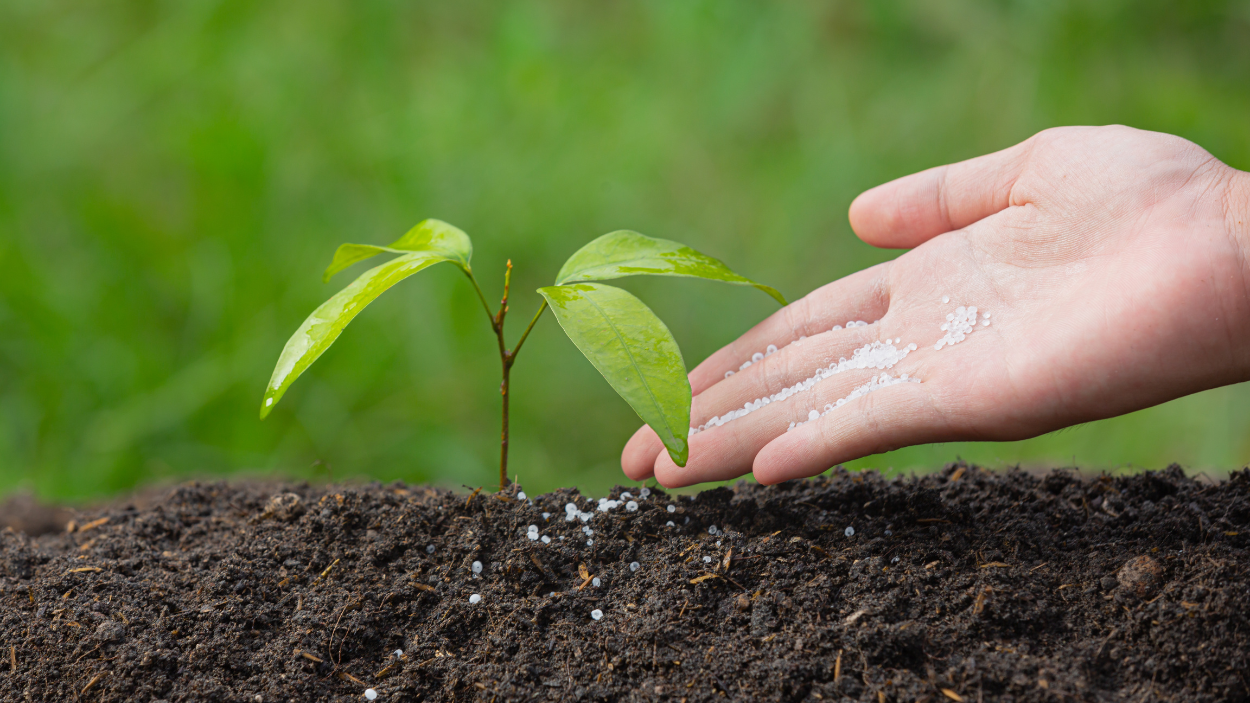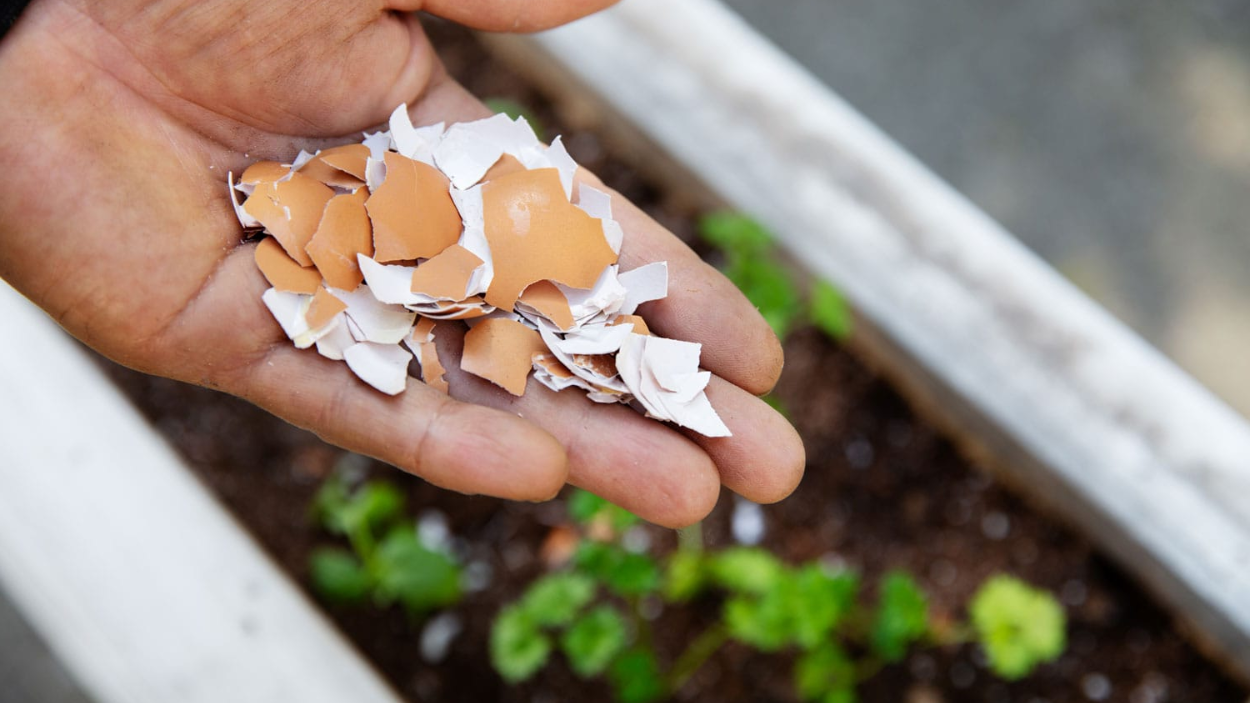Avoiding common fertilizer mistakes is crucial for maintaining healthy plants and a thriving garden. Over-fertilization, using the wrong type of fertilizer, and improper timing of application can all have negative impacts. To prevent these issues, carefully follow recommended application rates, select appropriate fertilizers based on plant and soil needs, and apply them at the right time. By avoiding these mistakes, you can provide your plants with the necessary nutrients in a balanced and effective manner, promoting their overall growth and vitality.
What Is Fertilizer?
Fertilizers are "Nutrients" added by humans to plants. Fertilizers contain many nutrients needed by plants. The main nutrients in manure are nitrogen (N), phosphorus (P), and potassium (K), called the macroelement group. In addition to the above substances, there are also groups of trace elements…
Fertilizers are divided into 3 main groups: organic fertilizers, chemical fertilizers (inorganic fertilizers) and microbial fertilizers, with the major difference between them being in origin rather than nutritional composition.
Common Mistakes When Using Fertilizers
1. Over-fertilization:
One common mistake when using fertilizer is over-fertilization. Applying excessive amounts of fertilizer can lead to nutrient imbalances in the soil, which can harm plant health. Over-fertilization can also cause root burn and contribute to environmental pollution. To avoid this mistake, follow recommended application rates and schedules provided by fertilizer manufacturers or based on soil test results.
2. Using the wrong type of fertilizer:
Using the wrong type of fertilizer for your specific plants or soil conditions can be detrimental. Different plants have varying nutrient requirements, and using an inappropriate fertilizer can result in nutrient deficiencies or toxicities. It is essential to understand the nutrient needs of your plants and select a fertilizer formulation that matches those requirements. Conducting a soil test can provide valuable information about your soil's nutrient content and pH, helping you make informed decisions about the type of fertilizer to use.
3. Improper timing of fertilizer application:
Timing is crucial when it comes to applying fertilizer. Applying fertilizer at the wrong time, such as during periods of dormancy or extreme weather conditions, can be ineffective or even harmful to plants. It is important to consider the specific growth stage of your plants and their nutrient demands. Applying fertilizer when plants are actively growing and can efficiently uptake the nutrients will yield better results.
4. Neglecting soil testing:
Neglecting soil testing is a common mistake that can hinder proper fertilizer use. Soil testing provides valuable information about the nutrient levels and pH of your soil. Without this information, it is challenging to determine the appropriate fertilizer formulation and application rates. Regular soil testing helps you understand your soil's fertility status and tailor your fertilizer use accordingly.
5. Applying fertilizer too close to plant stems or foliage:
When applying fertilizer, it is crucial to avoid direct contact between concentrated fertilizer and plant tissues. Applying fertilizer too close to plant stems or foliage can cause burning and damage. It is recommended to apply fertilizer at the recommended distance from plant roots and foliage to minimize the risk of harm.
6. Ignoring environmental considerations:
Using fertilizers irresponsibly can have negative environmental impacts. Excessive or improper use of fertilizers can contribute to water pollution, harm beneficial organisms, and disrupt ecological balance. It is important to follow environmental guidelines, use fertilizers responsibly, and avoid applying them near water bodies or sensitive areas.
7. Storing fertilizer improperly:
Improper storage of fertilizers can lead to clumping, degradation, or loss of effectiveness. Fertilizers should be stored in a cool, dry place away from moisture and direct sunlight. Proper storage helps maintain the quality and efficacy of the fertilizer over time.
Benefits of Using Fertilizer
Soil needs to be regularly maintained in its fertility. Soil is naturally composed of very fine rock, various minerals, and organic matter due to the decomposition of biological species. Plants get nutrients from sand, minerals, and organic matter, but these substances do not help support and maintain the necessary amount of "food" for plants to grow and develop.
At the time of plant growth, the plant needs essential nutrients so that its growth does not interfere with the growth process. Therefore, fertilizers are used to ensure that the plant receives proper nutrition during its growth.
3 main uses of fertilizers in general:
The effect of fertilizers on plant growth: providing nutrients necessary for plant growth.
The effect of fertilizers on crop productivity: a healthy, growing crop creates a premise for a high-yielding crop. Therefore, the use of adequate and balanced fertilizers will achieve the highest yield.
The effect of fertilizers on crop quality/quality: morphological criteria, color, nutrient composition, commercial value, weight, etc.
Frequently Asked Questions
Q: What is over-fertilization?
A: Over-fertilization refers to applying more fertilizer than necessary to plants. It can lead to nutrient imbalances, root burn, and environmental pollution.
Q: How can I avoid over-fertilization?
A: To avoid over-fertilization, follow recommended application rates and schedules provided by fertilizer manufacturers or based on soil test results. Use fertilizers sparingly and only when necessary.
Q: What are the consequences of using the wrong type of fertilizer?
A: Using the wrong type of fertilizer can result in nutrient deficiencies or toxicities in plants. Different plants have varying nutrient requirements, so it's important to choose a fertilizer formulation that matches their specific needs.
Q: How can I select the right type of fertilizer?
A: To select the right type of fertilizer, understand the nutrient needs of your plants and conduct a soil test to determine the soil's nutrient content and pH. This information will guide you in choosing a fertilizer that addresses any deficiencies or imbalances.
Q: What are the risks of improper timing of fertilizer application?
A: Applying fertilizer at the wrong time, such as during periods of dormancy or extreme weather conditions, can be ineffective or harmful to plants. It's crucial to apply fertilizer when plants are actively growing and can efficiently utilize the nutrients.
Final Thought
In conclusion, avoiding fertilizer mistakes is crucial for ensuring the long-term health and vitality of your plants. By following the recommended guidelines and taking a mindful approach to fertilization, you can provide your plants with the nutrients they need without causing harm. Remember to assess your plants' specific nutrient requirements, apply fertilizers correctly, and avoid excessive use. By doing so, you can create an environment that promotes optimal growth, strong root development, and vibrant blooms. With the right approach to fertilization, you can cultivate a beautiful and flourishing garden to be proud of.




